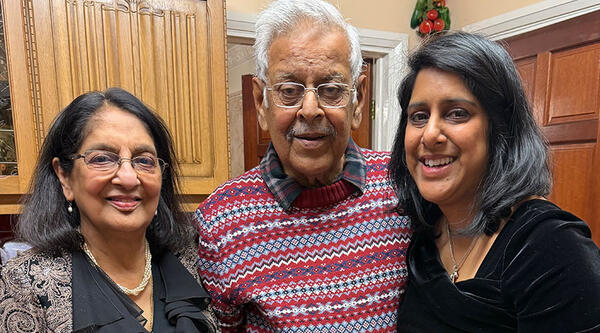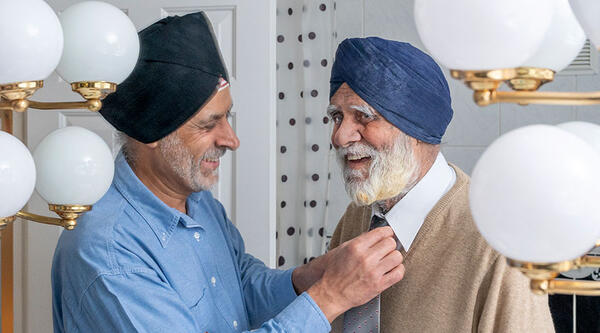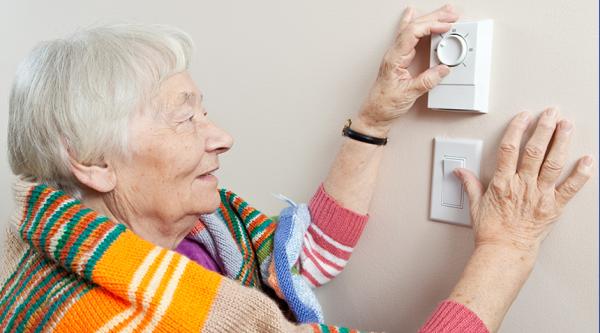Support and care when a person won't accept their dementia diagnosis
Trying to get help and support can be difficult when someone doesn’t understand or acknowledge that they have dementia. But support and care at home can help a person to stay independent for longer and to live well with dementia.
Denial and lack of insight
- Understanding denial and lack of insight
- What is the difference between denial and lack of insight?
- Coping with denial and lack of insight with dementia
- You are here: Support and care when a person won't accept their dementia diagnosis
- When family, friends or carers are in denial about dementia
- Understanding denial and lack of insight - useful organisations
Accepting support and care
When someone doesn’t understand or acknowledge that they are having difficulties, it can be hard to suggest they might need help and support. Support might help with practical aspects of everyday life. The person might be struggling with tasks such as shopping or taking medication, or household chores such as cooking or cleaning.
Motivating them to accept help
Try to think about what is important to the person and what could motivate them to accept help. You know them best. Start by thinking about other times where you needed to persuade them of something, and try to adapt what worked then to this situation.
Working out what help is needed
An assessment for care tells you what needs the person has, and what needs you may have as their carer. It also shows what care and support will meet these needs. For more information see our information on Assessment for care and support in England, Wales or Northern Ireland.
Daily living aids to support a person with dementia
There are a wide range of products and equipment designed to help with daily living. Items may be very simple or more hi-tech, but they can make a big difference to addressing specific problems that people with dementia might have. Many products are available from our online shop.
Care and support in the community
There are also many groups and local organisations that provide services for people with dementia. These can help them get out, take part in enjoyable activities and meet new people. Find out what is available near you with our dementia directory.
Support and care at home
If the person doesn’t think they are having problems, they will not see the need for extra help at home. Consider different ways to talk to them about this suggestion.
You could focus on the benefits to both of you of someone else helping with practical things at home such as preparing meals or doing the laundry, rather than focusing on what the person can’t do.
Try to introduce care and support gradually
If you’re arranging care at home, it can be helpful to introduce this idea gradually. It might be easier for the person to understand if you talk about getting some help more generally. If the person is reluctant to have help at home, talk to a homecare agency or your local adult social services team about this.
It might be possible for them to arrange a trial period or to gradually build up visits. This can help to develop the relationship between the person with dementia and the homecare assistant. It may help the person accept the amount of help they need, whether this is help with taking medication, household tasks or personal care.
Living positively with dementia
Some people may avoid accepting help because they feel there is a stigma around having a diagnosis of dementia. Encouraging the person to gain a better understanding about the condition can help, and they may become more familiar with the types of help and support that are available.
Examples of other people with dementia living well
Looking at how other people live positively with dementia can also help them feel more comfortable with the idea of accepting help and support.
You could do this together by looking at:
- our Dementia together magazine
- our online community Talking Point
- our YouTube channel.
You can use our dementia directory to find activities or support groups near you.
Over time, the person may begin to accept that they are having difficulties and they may become more accepting of help and support. However, this depends on the individual person and how much they are affected by denial or lack of insight.
Arranging care and support even if the person does not accept their diagnosis
There may come a point where you think it would be in the person’s best interests to arrange for them to have support. This might be even if they do not acknowledge that they need help, because you feel they no longer have the ability (known as the ‘mental capacity’) to make some decisions for themselves. For more support you can call our support line on 0333 150 3456.
If the person won’t accept support, and this means that they or someone else are in danger, contact their GP or the safeguarding team at your local authority.









